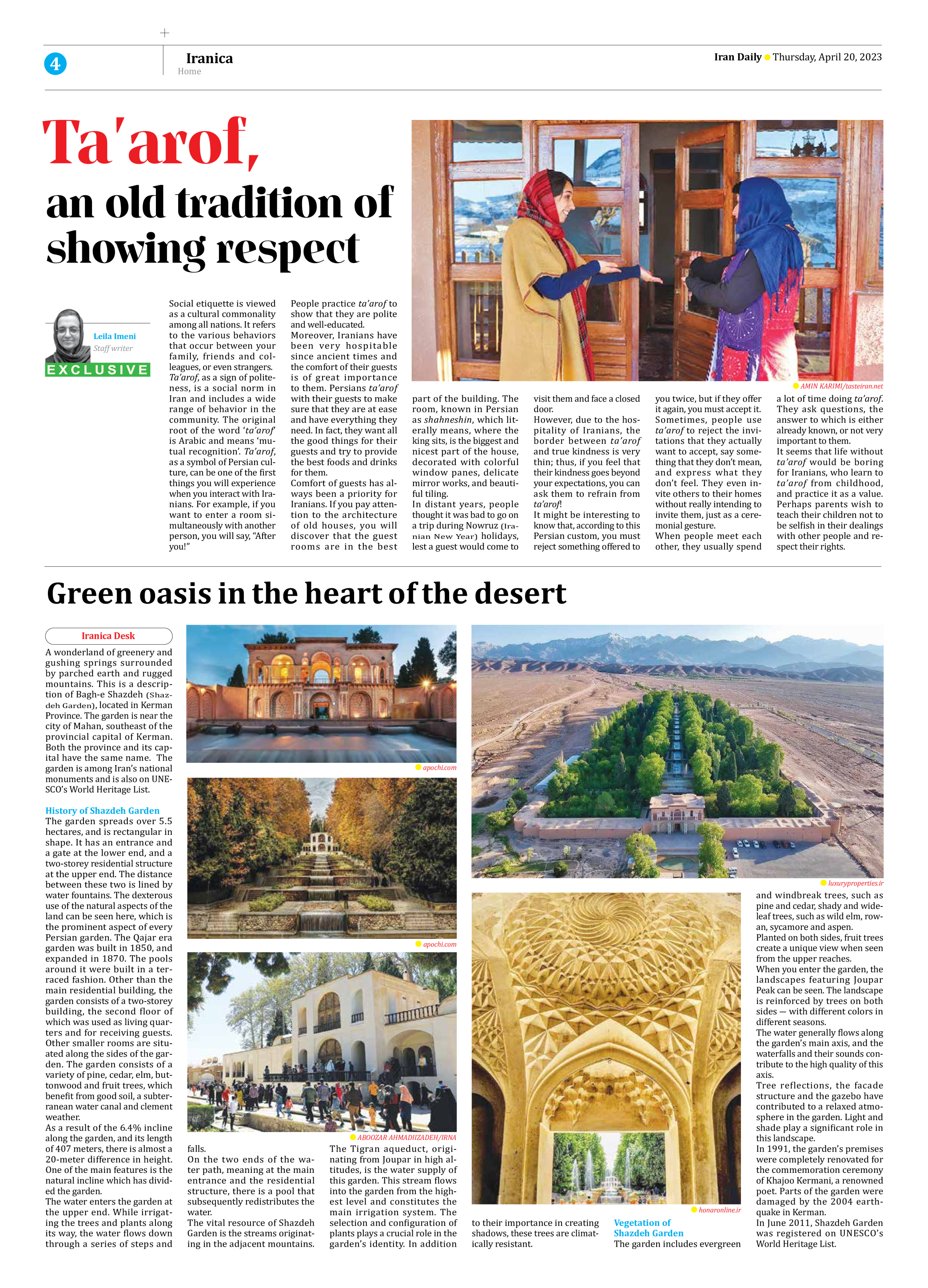
Ta’arof, an old tradition of showing respect
Leila Imeni
Staff writer
Social etiquette is viewed as a cultural commonality among all nations. It refers to the various behaviors that occur between your family, friends and colleagues, or even strangers.
Ta’arof, as a sign of politeness, is a social norm in Iran and includes a wide range of behavior in the community. The original root of the word ‘ta’arof’ is Arabic and means ‘mutual recognition’. Ta’arof, as a symbol of Persian culture, can be one of the first things you will experience when you interact with Iranians. For example, if you want to enter a room simultaneously with another person, you will say, “After you!”
People practice ta’arof to show that they are polite and well-educated.
Moreover, Iranians have been very hospitable since ancient times and the comfort of their guests is of great importance to them. Persians ta’arof with their guests to make sure that they are at ease and have everything they need. In fact, they want all the good things for their guests and try to provide the best foods and drinks for them.
Comfort of guests has always been a priority for Iranians. If you pay attention to the architecture of old houses, you will discover that the guest rooms are in the best part of the building. The room, known in Persian as shahneshin, which literally means, where the king sits, is the biggest and nicest part of the house, decorated with colorful window panes, delicate mirror works, and beautiful tiling.
In distant years, people thought it was bad to go on a trip during Nowruz (Iranian New Year) holidays, lest a guest would come to visit them and face a closed door.
However, due to the hospitality of Iranians, the border between ta’arof and true kindness is very thin; thus, if you feel that their kindness goes beyond your expectations, you can ask them to refrain from ta’arof!
It might be interesting to know that, according to this Persian custom, you must reject something offered to you twice, but if they offer it again, you must accept it.
Sometimes, people use ta’arof to reject the invitations that they actually want to accept, say something that they don’t mean, and express what they don’t feel. They even invite others to their homes without really intending to invite them, just as a ceremonial gesture.
When people meet each other, they usually spend a lot of time doing ta’arof. They ask questions, the answer to which is either already known, or not very important to them.
It seems that life without ta’arof would be boring for Iranians, who learn to ta’arof from childhood, and practice it as a value. Perhaps parents wish to teach their children not to be selfish in their dealings with other people and respect their rights.







